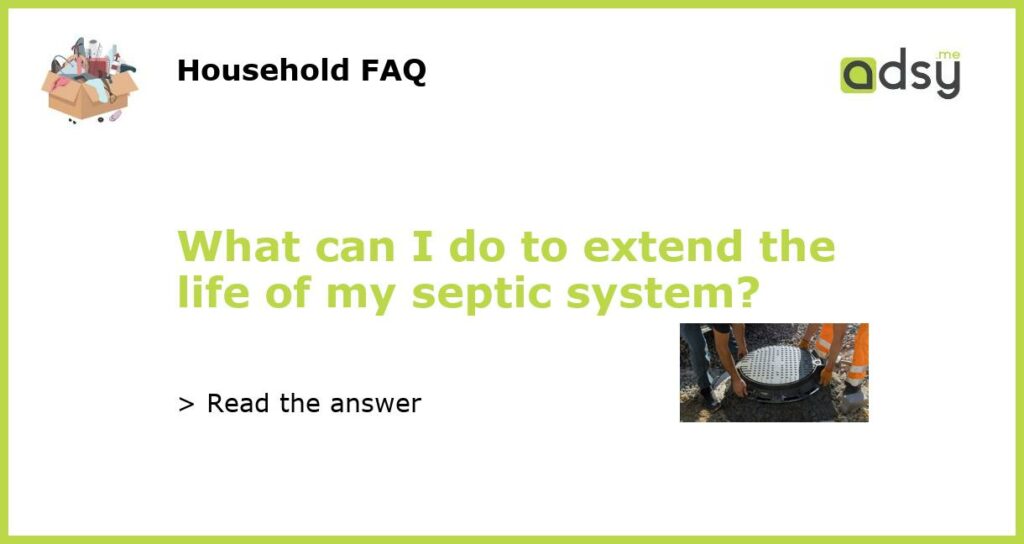Regular pumping and maintenance
Regular pumping and maintenance is one of the key ways to extend the life of your septic system. Septic tanks should ideally be pumped every 3-5 years, depending on the size of your tank and the number of people living in your household. Regular pumping removes the accumulated solids from the tank, reducing the risk of clogs and backups. It also allows for a thorough inspection of the system to identify any potential issues before they become major problems.
Use water efficiently
Water usage has a direct impact on the life of your septic system. The more water you use, the more strain you put on the system. To extend the life of your septic system, use water efficiently by fixing any leaky faucets or toilets, only running full loads in the dishwasher and washing machine, and spreading out water-intensive activities like showers and laundry throughout the week. By using water efficiently, you can reduce the workload on your septic system and help it function optimally for longer.
Avoid flushing non-biodegradable items
One of the quickest ways to damage your septic system is by flushing non-biodegradable items down the toilet. Items like paper towels, sanitary products, baby wipes, and dental floss can clog your system and cause backups. To extend the life of your septic system, only flush toilet paper and waste down the toilet. Encourage guests to do the same by providing a small trash can in the bathroom for non-flushable items. By avoiding the flushing of non-biodegradable items, you can prevent costly repairs and keep your septic system running smoothly.
Be mindful of what goes down the drain
In addition to what is flushed down the toilet, it’s important to be mindful of what goes down the drain in your sinks, showers, and tubs. Avoid pouring grease, oil, chemicals, and medications down the drain, as these can harm your septic system and the environment. Opt for natural cleaning products when possible and use strainers to catch food scraps and other solids before they enter the drain. By being mindful of what goes down the drain, you can protect your septic system and ensure it has a longer lifespan.
Protect the drain field
The drain field is a crucial part of your septic system, as it is responsible for filtering and treating the wastewater that leaves the septic tank. To extend the life of your septic system, it’s important to protect the drain field. Avoid parking heavy vehicles or installing structures over the drain field, as this can compact the soil and impede its ability to treat wastewater. Additionally, avoid planting trees or shrubs with deep roots near the drain field, as these roots can infiltrate the pipes and cause damage. By protecting the drain field, you can ensure the longevity of your septic system.

